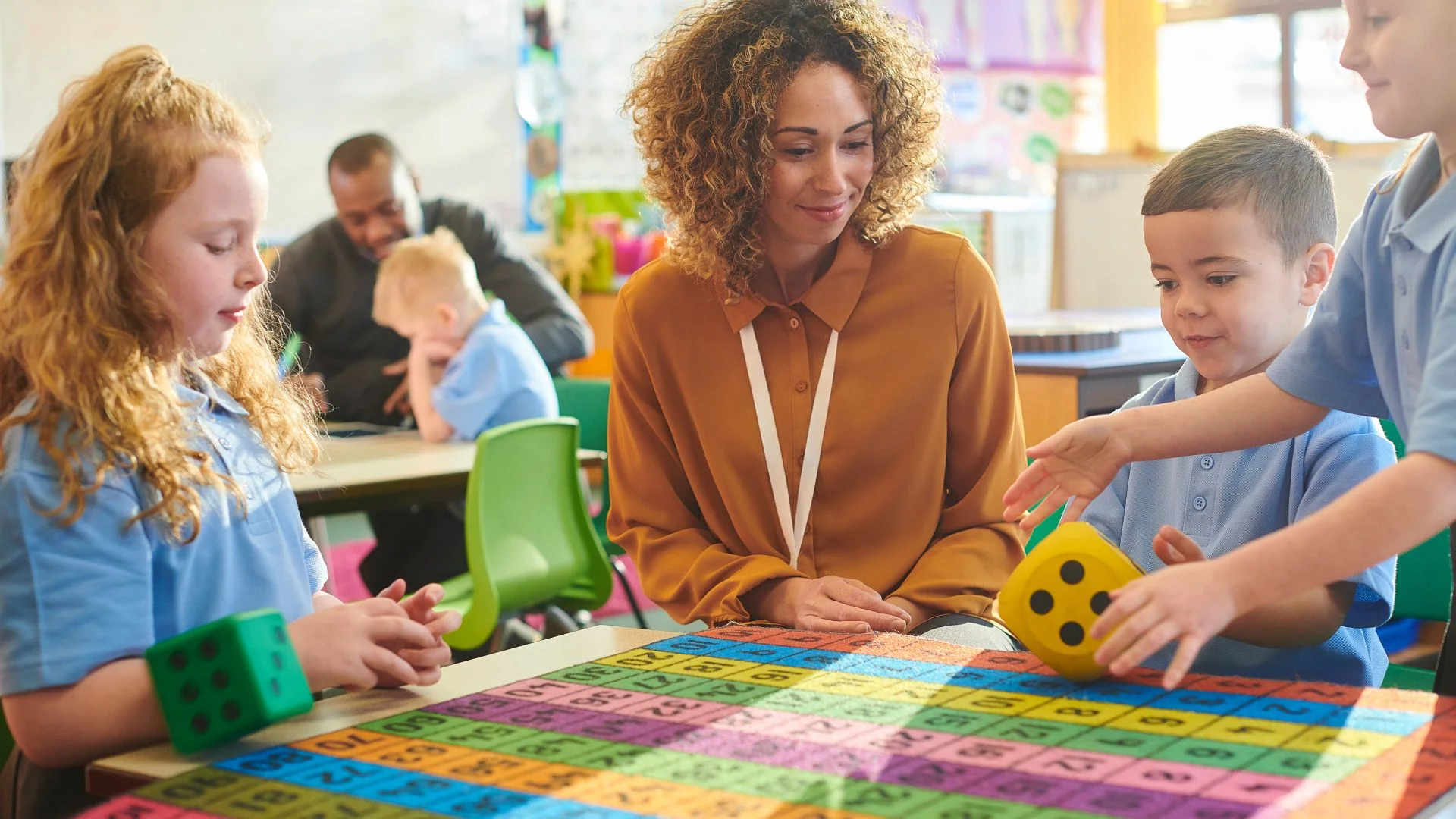Understanding and Managing Safeguarding Concerns in Schools
02 Oct, 20251-2 minutes
In this blog, you will learn:
- How to understand and manage safeguarding concerns in schools.
- The impact of safeguarding in schools.
- Where the latest education jobs are and how to apply for them.
Understanding and managing safeguarding concerns in schools can be challenging at times due to evolving safeguarding policies and procedures, societal issues and the need for collaboration between various professionals.
However, it is essential for school staff to stay informed about safeguarding practices to ensure that all children are safe from harm, abuse and neglect. Recognising and managing safeguarding concerns is not only a legal duty but also crucial for a child's overall development.
This guide covers everything you need to effectively understand and manage safeguarding concerns in your school.
Understanding safeguarding concerns in schools
Understanding safeguarding concerns in schools is crucial as children may not always be able to recognise or voice when something is wrong. Therefore, Teachers and staff must remain alert.
Safeguarding in schools means protecting children from any potential harm, abuse and neglect and ensuring they have a safe place to learn and grow. A safeguarding concern may show in changes of appearance, attendance and behaviour or may be small things a child may say.
For example, a child who frequently arrives at school with unexplained injuries or complains of pain may be experiencing physical abuse and children who arrive without proper clothing or food may be facing neglect at home.
It’s extremely important that school staff identify these concerns promptly to reduce the risk of further harm occurring and to ensure they can provide necessary support.
Managing safeguarding concerns in school
When a safeguarding concern arises in a school, school staff must be fully aware of how to manage the concern effectively. Managing safeguarding concerns involves several key steps which includes:
- Ensuring immediate safety.
- Gathering accurate information.
- Taking appropriate action and reporting.
- Providing ongoing support.
Ensuring immediate safety
The first priority in managing a safeguarding concern is to ensure the child is immediately safe. This is to ensure the school is upholding their legal duty and also prevents any further harm from occurring.
For example, if a child reports abuse or harm at home, schools must keep the child in a safe environment and not send them home until appropriate support is in place. If a child is facing danger within the school, staff must remove the child from the situation immediately.
Gathering accurate information
When a safeguarding concern arises, schools must gather clear and specific information so the concern can be properly assessed. For instance, if a child frequently comes to school hungry or in unkempt clothing, staff should note the exact dates of these occurrences.
This creates a factual record that can indicate potential neglect. Likewise, if a child shares a concern with a Teacher, the Teacher should document the details accurately, including the child's exact words and avoid asking leading questions.
This ensures that any intervention or investigation is based on factual and accurate information.
Taking appropriate action and reporting
Once a safeguarding concern has been identified, it must be reported following the schools safeguarding procedures and policies. Prompt reporting ensures that intervention can happen quickly and reduce the risk of the child facing further harm.
Teachers should inform the Designated Safeguarding Lead, who may reach out to social services or the police based on the severity of the situation.
Even if a concern appears minor, it is crucial to report it to ensure the child receives the necessary support. Immediate action might involve separating a child from a harmful situation or coordinating support from external agencies.
Providing ongoing support
Providing ongoing support to a child who has faced harm, abuse or neglect is essential for their wellbeing. This support helps the child feel safe and not alone. For instance, a child who has endured physical or emotional abuse may benefit from counseling, regular check-ins and emotional support.
Meanwhile, a child facing bullying might require adjustments in the classroom, such as changes in seating arrangements or peer support programs.
Understanding the impact of safeguarding in schools
Safeguarding in schools is a shared responsibility that requires awareness, vigilance and action from everyone in the school community.
By understanding what safeguarding concerns look like and knowing how to manage them effectively, schools can protect children from harm, abuse and neglect and provide timely support as well as a safe environment where every child feels secure.
SCG School Insights Report 2025
As specialists in education and SEND recruitment, we work closely with primary, secondary, and SEND schools throughout the UK and are mindful of the challenges that schools and teaching staff are currently facing.
In the School Insights Report 2025, we explore pupil experience and outcomes, key developments impacting the education sector, staffing and workforce trends, and the state of funding and resources in education. Read the SCG School Insights Report 2025 here.
Teaching jobs
If you’re searching for your next teaching job, why not take a look at the latest teaching vacancies, or simply upload your CV to be notified when a relevant position becomes available.
Recruit teaching staff
As a specialist education recruitment agency, we support mainstream and SEND schools with their temporary, permanent and temp-perm staffing needs.
We currently work with hundreds of schools and have exclusive access to some of the best Teachers and Teaching Assistants in the North West.
If you’re struggling to fill a teaching vacancy, why not get in touch with one of our team to see how we can help?
- Primary schools - Jimmy Callagher
- Secondary schools - Liam Jones
- SEND schools - Jamie Heath
Meet Jamie Heath
Who is Spencer Clarke Group?
Established in 2017, we’re an award winning and progressive recruitment agency based in the heart of the North West. Our reputation is built on trust, expertise and an unwavering commitment to exceed expectations.
In 2025, Spencer Clarke Group was awarded Best Public/Third Sector Recruitment Agency and Best Temporary Recruitment Agency at the Recruiter Awards. In 2024, Spencer Clarke Group was also named Recruitment Agency of the Year.





